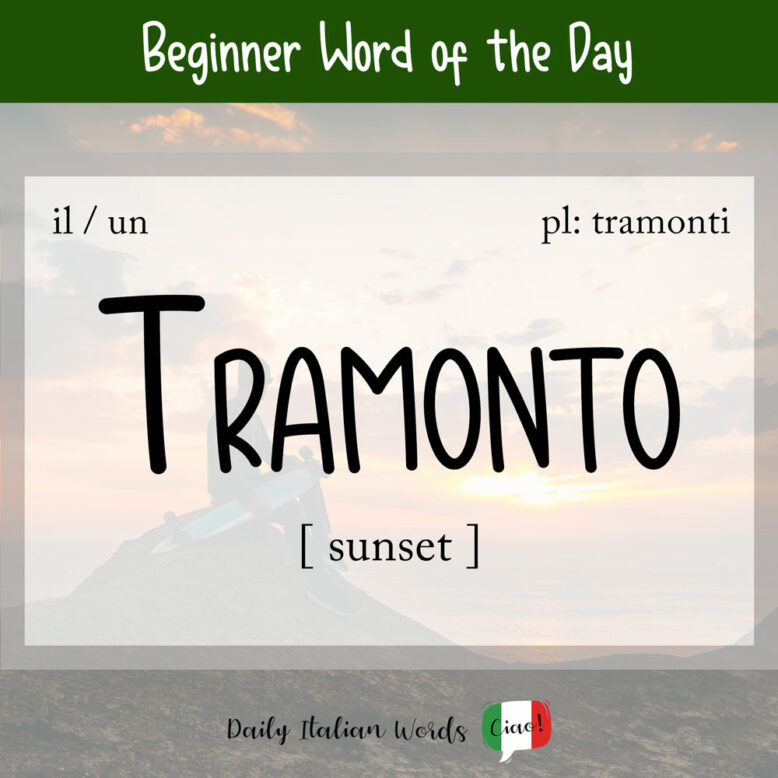The word for sunset in Italian is tramonto (masculine, plural: tramonti).
Derived from the verb tramontare (to set, fade, wane), it is a combination of the word monte (mount) and the prefix tra-. The latter normally means between, but in this case, the definition is closer to beyond. Together they form ‘to go beyond the mountains‘, a phrase that elicits the image of the sun disappearing behind a mountain range at the end of the day. Rather romantic, isn’t it?

Another possible translation for tramonto is dusk, as evidenced by the expression dall’alba al tramonto (from dawn to dusk). An alternative way of translating dusk is crepuscolo which also means twilight.

Che bel tramonto che c’è stasera!
What a beautiful sunset there is this evening!
You can also use tramonto to indicate the time of the day.
La festa in spiaggia comincia al tramonto. Ci vediamo lì!
The beach party starts at sunset. See you there!

Tramonto can be used figuratively to talk about a time when the full strength or power of something decreases or comes to an end such as a person’s life or a dynasty.
Gino ha novantadue anni. Ormai è al tramonto della vita.
Gino is 92 years old. He is at the end of his life.
The expression sul viale del tramonto, which literally means on the boulevard of the sunset, is a poetic way of saying that something is in decline or someone has passed their peak.
Quell’attore è sul viale del tramonto.
That actor has passed his peak.
Trivia: the expression viale del tramonto became popular when it was used as the Italian title for the 1950 Hollywood film “Sunset Boulevard”, directed by Billy Wilder and starring Gloria Swanson and William Holden.
In the clip below, you can watch the final scene in Italian with the famous quote at the end Eccomi DeMille, sono pronta per il mio primo piano (All right, Mr. DeMille, I’m ready for my close-up.)
If you can’t follow the dialogue, try activating the auto-generated subtitles. They’re accurate for the most part.
Heather Broster is a graduate with honours in linguistics from the University of Western Ontario. She is an aspiring polyglot, proficient in English and Italian, as well as Japanese, Welsh, and French to varying degrees of fluency. Originally from Toronto, Heather has resided in various countries, notably Italy for a period of six years. Her primary focus lies in the fields of language acquisition, education, and bilingual instruction.


